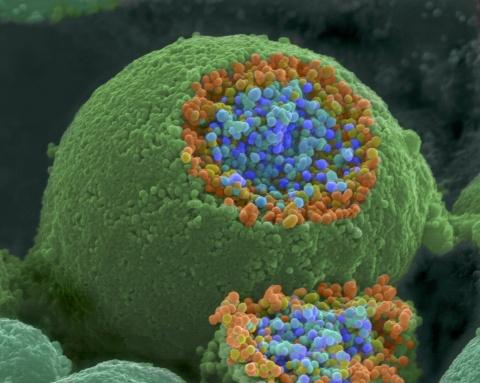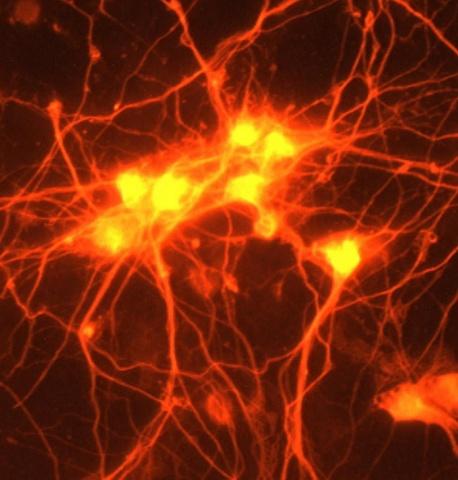Staff Spotlight: Amy Obssi
This week’s “Spotlight” interview shines on Amy Obssi, our newest clinical research coordinator in the division of Memory Disorders. Obssi talks to us about her role in helping to conduct research into treatments for Alzheimer’s disease and other dementias both at Duke and in her previous role at Toronto Western Hospital.
Staff Spotlight: Nicole Osborne
Nicole Osborne first came to Duke in 2020 to help screen patients for COVID-19 at Duke University Hospital. Last year, she came to our Morreene Road Clinic as a patient service associate (PSA). For this week’s Spotlight interview, Osborne talks to us about the joys of forging connections with patients, how having a close family member in need of medical care gave her a new perspective, and enjoying time with family and friends outside of work.
Staff Spotlight: Clare Essex
Professionally, Clare Essex lives in two worlds. Within the lab of Laurie Sanders, PhD, and Carol Colton, PhD, in the Duke Neurology Department, she’s working part-time to improve understandings the genetic underpinnings of neurodegenerative disease. Essex spends the other half of her work week as a medical scribe at UNC REX Hospital in Raleigh.
Staff Spotlight: Bryan Day
The life of Bryan Day involves balancing two separate roles. From Monday through Friday, Day acts as a staff assistant for the Neurology Department, answering phone and email requests, and helping patients and providers make and keep their schedules. On weekends and evenings, Day heads over to the Clarksville Station restaurant, which he owns and manages. For this week’s Spotlight interview Day talks to us about his work at Duke, the joys and challenges of running a restaurant, and how he uses lists to keep his busy life in order.
Staff Spotlight: Pamela Neville
Recent addition to the Duke Neurology Department Pamela Neville has big shoes to fill. After the retirement of Kathy Ervin, a nearly four-decade veteran of Duke, at the end of 2021, Neville is taking on the duties of making sure new faculty have the tools and systems they need to be successful at Duke as well as assisting in the promotions process.
Duke Neurology Research Round Up, January 2022
Research authored by members of the Duke Neurology Department published during the final month of 2021 advanced our knowledge of stroke, epilepsy, dystonia, and other conditions.
Duke Neurology 2021: A year in review (part 2 of 2)
The second half of 2021 was as eventful as the first for the Duke Neurology Department. Story highlights from July through December of this year include our Leonard White, PhD, winning a national award for excellence in teaching, the founding of a joint Duke/UNC Alzheimer’s Disease Research Center, two of our hospitals receiving the American Heart Association/American Stroke Association’s highest award for quality stroke care, and the School of Medicine receiving awards totaling $18 million to uncover the origins of Parkinson’s disease.
Duke Neurology 2021: A year in review (part 1 of 2)
The Duke Neurology Department continued to grow and expand its missions of providing excellent clinical care, conducting research to improve our understanding of neurological conditions and how to treat them, and training the next generation of neurologists throughout 2021.
Staff Spotlight: Jeison Valencia
Jeison Valencia has been inspired to pursue science and laboratory research since age 7, after he watched an episode of the Powerpuff Girls, in which a scientist creates the three female superheroes. Now, as a member of the Chiba-Falek lab, the lab technician is performing analyses on brain tissue to better understand the roots of Alzheimer’s and other neurodegenerative conditions.
Duke Neurology Research Round Up, December 2021
Members of the Duke Neurology Department contributed to 14 new peer-reviewed journal articles written this November. Highlights include an analysis of fragmentation within the delivery of neurological health care, an examination of racial disparities in the use of telehealth, and a discussion of the best ways to use social medicine to share news on epilepsy and clinical neurophysiology. Read the paragraphs below for short summaries of each of these 14 articles, as well as links to the original entries themselves.
Memory Disorders









